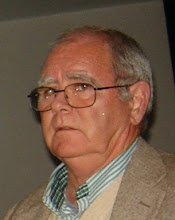The regime will cease to be
an exception in European foreign policy. Foreign ministers of the European Union on Monday gave a mandate to the European Commission to start negotiating a political settlement with the regime of Raul Castro, a move that marks the beginning of the thaw in relations. After years of discussions, the ministers unanimously approved the beginning of the dialogue, which allows lift the ban that the EU imposed a totalitarian
dictatorship in 1996.
With this measure, the EU executive can openly negotiate with the regime to sign a bilateral agreement to regulate the dialogue, trade agreements, cooperation
and any other item of interest both sides, explain various diplomatic sources. So far, the European Union had no open communication channel with the des-government,
as was ruled by the so-called common position: a diplomatic tool that conditioned any semblance of dialogue to advance
human rights on the
island. In practice
this meant a crash in relations between the EU and the neo-feudal regime.
The totalitarian regime of the Castro brothers, is the only one in the world that is ruled by the so-called common position, the Commission explains, a stigma that will decay if the negotiation reaches fruition.
Currently, the countries keep waiting to see how negotiations develop. It has
ensured that
some have demanded reluctant to open dialogue with the dictatorship (including Germany, Czech Republic and Poland) to give its approval to the process. These countries have demanded that the European Union supervise at all times the respect given the des-government
to human rights, an issue that European diplomacy eludes narrow tracks not to give the regime what your concerns are. Member countries monitor the measures to promote freedom of expression and other fundamental freedoms, not to repress the opposition, that justice is independent or guarantee access to the Internet, among other things.
That same lack of specificity
applies to the other elements to be negotiated with the dictatorship. The Commission kept secret guidelines that will guide the dialogue, although diplomatic sources suggest that this is generally to provide a framework of legal certainty to the relationship that members want to establish with the totalitarian regime (and many already have but actually contravenes common position). With the "signs of openness" that is emitting the regime, the EU does not want to get out of an area that
can provide profitable
investment opportunities.
There may also be improvements
in trade relations,
though a factor of less magnitude than the investment. The agreement will also allow greater European cooperation with the dictatorship, now almost testimonial. Since cooperation was resumed in 2008, the neo-feudal regime
has received only 80 million euros in total for development projects, EU sources say.
Negotiation can take
about a year,
according to unofficial
estimates, although this process managers are optimistic about the outcome. The European Union has tried many times in the past to break the blockade with the totalitarian dictatorship ruled without result. It was never as now, to open
a box that
had broad political aim to break the common position set in 1996. After many rounds of discussion, the foreign ministers on Monday will approve the measure without debate.
Catherine Ashton
warns that the pace of negotiations will depend on progress in human rights.
After receiving the approval of
the Twenty-eight to open contacts with the dictatorship, the High
Representative for Foreign Policy of the European Union said Monday that
negotiations with the dictatorial regime to normalize relations depend on
progress on human rights . "We have raised our concerns consistently on
human rights, which remain central to this relationship."
Does Ashton expects Raul Castro to do what is needed?




No hay comentarios:
Publicar un comentario